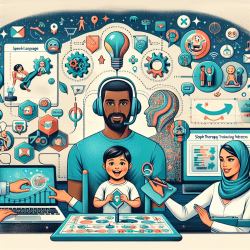Individualized Education Program (IEP) planning and meetings can be overwhelming for parents of children with special needs. Understanding the process and knowing how to advocate for your child's unique requirements are crucial steps in ensuring they receive the best possible education and support. This blog aims to provide you with comprehensive insights and practical tips to navigate IEP planning and meetings effectively.
Understanding the IEP Process
The IEP is a legally binding document that outlines the educational goals, services, and accommodations necessary for your child to succeed in school. The process involves several steps:
- Referral: A teacher, parent, or other professional can refer a child for an IEP evaluation.
- Evaluation: A team of specialists will assess your child's needs through various tests and observations.
- Eligibility: Based on the evaluation, the team determines whether your child qualifies for special education services.
- IEP Meeting: The IEP team, including parents, teachers, and specialists, collaborates to develop the IEP document.
- Implementation: The school implements the IEP, and progress is monitored regularly.
- Annual Review: The IEP is reviewed and updated annually to reflect your child's evolving needs.
Preparing for the IEP Meeting
Preparation is key to a successful IEP meeting. Here are some steps to help you get ready:
- Review the Current IEP: Familiarize yourself with your child's current IEP to understand what has been working and what needs improvement.
- Gather Documentation: Collect any relevant documents, such as progress reports, medical records, and evaluations, to support your child's needs.
- List Your Concerns and Goals: Write down any concerns you have and specific goals you want to address during the meeting.
- Consult with Professionals: Speak with your child's teachers, therapists, and other professionals to gather their input and recommendations.
- Know Your Rights: Familiarize yourself with your legal rights under the Individuals with Disabilities Education Act (IDEA).
During the IEP Meeting
The IEP meeting is a collaborative effort, and your input as a parent is invaluable. Here are some tips to help you navigate the meeting:
- Be an Active Participant: Share your insights, ask questions, and express any concerns you may have.
- Stay Focused on Your Child's Needs: Keep the discussion centered on your child's unique needs and how the IEP can address them.
- Take Notes: Document key points and decisions made during the meeting for future reference.
- Ask for Clarification: If you don't understand something, don't hesitate to ask for an explanation.
- Be Open to Collaboration: Work with the IEP team to find the best solutions for your child's education.
After the IEP Meeting
Following up after the IEP meeting is essential to ensure the plan is implemented effectively:
- Review the Final IEP: Carefully review the final IEP document to ensure it accurately reflects the decisions made during the meeting.
- Monitor Progress: Keep track of your child's progress and communicate regularly with their teachers and therapists.
- Stay Involved: Continue to be an active participant in your child's education by attending meetings, volunteering, and staying informed.
- Request Revisions if Needed: If you feel the IEP is not meeting your child's needs, don't hesitate to request a meeting to discuss revisions.
The Role of Online Therapy in IEPs
Online therapy services, such as those provided by TinyEYE, can play a significant role in supporting your child's IEP goals. Our online speech therapy in schools and mental health services are designed to be accessible, flexible, and tailored to meet the unique needs of each student. By incorporating online therapy into your child's IEP, you can ensure they receive consistent, high-quality support, regardless of geographical limitations.
Conclusion
IEP planning and meetings are critical components of your child's educational journey. By understanding the process, preparing effectively, and actively participating in meetings, you can advocate for your child's needs and help them achieve their full potential. Remember, you are not alone in this journey. Reach out to professionals, support groups, and online therapy services like TinyEYE to ensure your child receives the best possible care and education.










